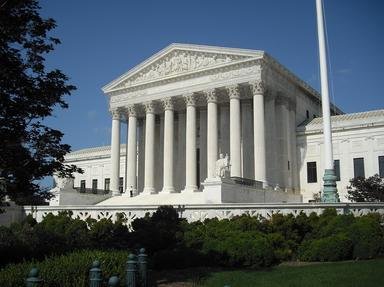Quiz Answer Key and Fun Facts
1. Ruth Bader Ginsburg graduated first in her class with a Bachelor of Laws degree from which university in 1959?
2. Ginsburg was denied a clerkship by which Supreme Court Justice in 1960 because she was a woman?
3. Ruth Bader Ginsburg later became legal counsel for the American Civil Liberties Union where she focused on what?
4. Ginsburg argued a number of cases before the Supreme Court, including a number of landmark cases. Ginsburg argued and won all of the following cases, but in which one did the Court, for the first time, use the Equal Protection Clause to strike down the different treatment of genders?
5. What was Ginsburg's response to William Rehnquist's question "You won't settle for putting Susan B. Anthony on the new dollar, then?" during her oral arguments in Duren v. Missouri?
6. What is the Ginsburg Rule, something was named after Ruth Bader Ginsburg during her Supreme Court confirmation hearings?
7. In 1999, Ginsburg wrote the majority opinion in Olmstead v. L.C., which expanded the rights of which group of people?
8. In 2007, Ginsburg dissented in Ledbetter v. Goodyear Tire & Rubber Co, saying that the 180-day limit to argue a pay discrimination should not have been applied from when it began for what reason?
9. In 2013, Justice Ginsburg became the first Supreme Court Justice to do what?
10. In 2014, Ginsburg gained international attention, and the nickname Notorious R.B.G., for her dissenting opinion in which case about birth control and religion?
Source: Author
Joepetz
This quiz was reviewed by FunTrivia editor
trident before going online.
Any errors found in FunTrivia content are routinely corrected through our feedback system.

